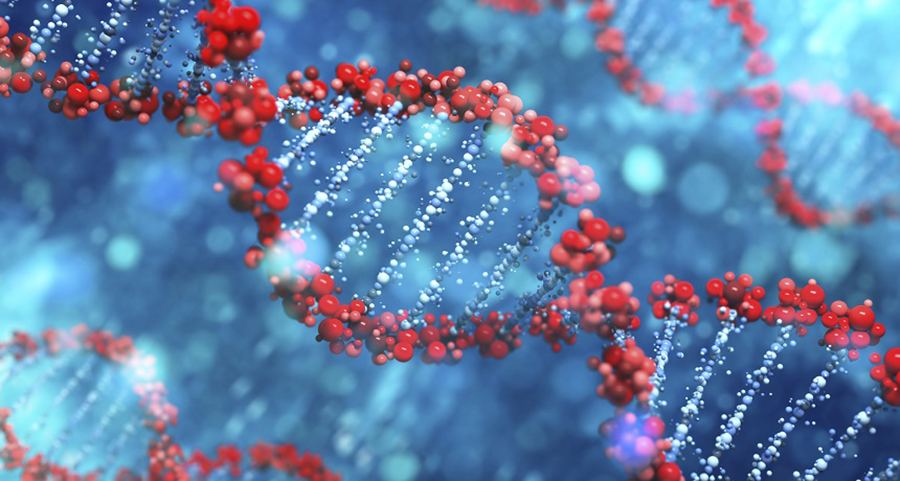A team led by Varun Warrier, a doctoral student in neuroscience at the University of Cambridge, England, found that the empathy inherent to a human being is not only originated by its experiences, but also as a result of their genes.
The research was published in Nature Journal. The leaders named it “Genome-wide analyses of self-reported empathy: correlations with autism, schizophrenia, and anorexia nervosa.”
The study analyzed a total of 46,861 customers from the 23andMe, Inc. base – which is a personal genetics company. They were divided according to their gender. Thus, 24,543 participants were females, and 22,318 were males. The human research protocol was reviewed and approved by Ethical & Independent Review Services.
Previous research showed how some groups were more empathetic than others, and that on average, women are more empathetic than men. It also depicted how autistic people scored lower on the Empathy Quotient (EQ) – the questionnaire -, which set them to struggle with cognitive empathy.

Genes and empathy
The DNA of the participants and their genotyping were obtained through saliva samples, which the the National Genetic Institute, USA processed in collaboration. In the study, the team explained that they performed a linear regression assuming an additive model of genetic effects. The ages and genders were included as covariates.
Regarding genomic inflation factor due to population stratification, the team used Linkage Disequilibrium Score Regression (LDSR) for their calculations. They applied extended methods for heritability and genetic correlation, and portrayed how male and female had differences in their heritability factor.
The first result obtained suggested that the levels of empathy are partly due to genetics.
“This is an important step towards understanding the role that genetics plays in empathy. But keep in mind that only a tenth of individual differences in empathy in the population are due to genetics. It will be equally important to understand the non-genetic factors that explain the other 90%,” Dr. Warrier said.
The team identified four genetic correlations between the EQ and psychiatric/psychological conditions. The second ones included autism, schizophrenia, anorexia nervosa and extraversion.
A negative correlation between the EQ and autism showed how subjects with the disease had self-reported a lower empathy level. The team explained it as a difficulty that the autist participants presented when attempting to understand the mental states of others rather than merely responding to them.

The team also identified an essential genetic correlation for the EQ with schizophrenia and anorexia nervosa. The analysis demonstrated deficits in cognitive empathy that schizophrenic subjects had. However, affective empathy was preserved or even gained strength, just as the emotional contagion and personal distress.
Individuals with anorexia nervosa showed mixed results. They suggested preserved empathy and reduced cognitive empathy. They also identified greater emotional contagion/persona distress when compared to anorexia nervosa subjects.
Empathy increases the risk for schizophrenia and anorexia nervosa
Among the subjects with a more significant self-reported empathy, the previous studies identified some genetic variants risks for schizophrenia and anorexia nervosa. The team suggested that educational attainment can mediate the possible correlation between empathy and anorexia nervosa.
However, the recent study does not identify self-reported empathy as correlated with educational attainment. The researchers even explained that cognitive empathy was not correlated with schizophrenia.
“Schizophrenia and anorexia share significant positive genetic correlation, and it is possible that the pleiotropy between these two conditions may, in part, be mediated by genetic variants that contribute to empathy. This needs to be tested. Together with the GWAS on cognitive empathy, this study provides evidence for the distinct roles of different social processes in various psychiatric conditions,” the team claimed.
Specific genes not yet identified
Members of the team were excited to describe their findings.

According to them, they showed genetic factors that could help them understand people with psychiatric or psychological abilities appreciated when imagining another human being’s thoughts and feelings.
They also called to the public to support those and to promote inclusion.
“This new study demonstrates a role for genes in empathy, but we have not yet identified the specific genes that are involved. Our next step is to gather larger samples to replicate these findings, and to pin-point the precise biological pathways associated with individual differences in empathy,” Professor Thomas Bourgeron added.
Source: Nature
